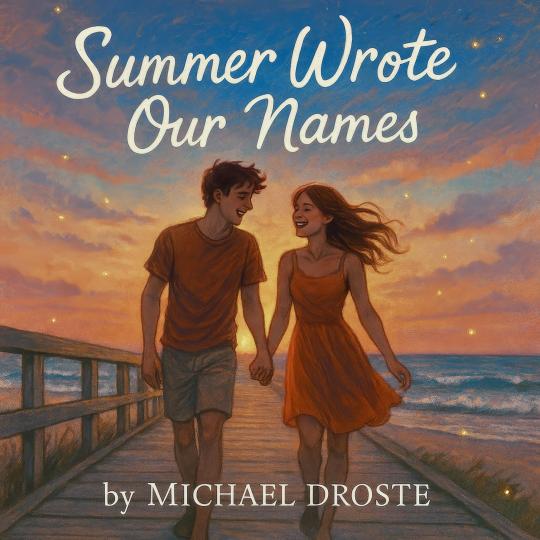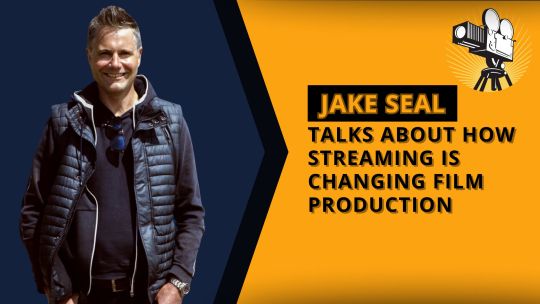#StreamingPlatforms
Explore tagged Tumblr posts
Text
Real-Time Analytics for Streaming Services with Apache NiFi
Explore how streaming services can leverage Apache NiFi to optimize real-time user analytics. Improve content recommendations, user engagement, and operational efficiency with seamless data flow management.
0 notes
Text
Coming soon to your favorite music platforms like Spotify, Apple Music, Amazon Music, and YouTube! 🎶 Stay tuned for updates.

0 notes
Text
🌐 The future of video streaming is unfolding fast! From niche platforms and AI-driven personalization to live interactivity and next-gen tech like AV1 and 5G — the way we stream is transforming like never before. 🎥✨ Dive into our latest blog to explore the top trends reshaping the digital entertainment world! 🚀
Read More - https://tinyurl.com/53srzmnv
#videostreamingtrends#Nichestreamingplatforms#streamingplatforms#bestlivestreamingplatforminLaravel#LaravelOTTStreamingSolution#OTTStreamingSolution#VideoStreamingSolutioninLaravel
0 notes
Text
Jake Seal Talks About How Streaming Is Changing Film Production

A lot of things in the film industry have changed as a result of the development of streaming platforms. Jake Seal, a seasoned producer at ORWO Studios, understands how much streaming has changed film production. As streaming giants like Netflix, Amazon Prime, and Disney+ continue to grow, filmmakers and studios have had to adapt. Jake Seal discusses the impact of streaming on film production and how these changes affect the way movies are made, distributed, and consumed.
1. A Shift in Filmmaking Focus
Streaming has changed how filmmakers approach their craft. Traditionally, the film industry focused on large theatrical releases that aimed to generate massive box office revenue. Today, however, streaming platforms offer a new model where films and TV shows are often produced with smaller budgets, yet reach a global audience instantly.
Jake Seal highlights that this shift has allowed more creative freedom for filmmakers. Without the pressure of pleasing theater audiences and relying on box office sales, filmmakers are able to explore new ideas and take risks. Indie filmmakers, in particular, have found a voice in the streaming era. The barriers to entry for producing content are lower, making it easier for new voices and diverse stories to be heard.
2. Lower Budgets, Higher Quality
While streaming platforms have lowered the financial risk for filmmakers, they’ve also increased the demand for high-quality content. Jake Seal explains that streaming services are pushing for movies and shows that are just as polished and engaging as their big-budget theatrical counterparts. In fact, many streaming platforms are now producing films that rival traditional Hollywood productions in terms of quality.
This means that studios, including ORWO Studios, are finding innovative ways to cut costs without sacrificing production value. Advances in technology, such as digital filmmaking tools and special effects, allow filmmakers to create stunning visuals on a lower budget. Streaming has also created opportunities for using a smaller, more efficient production crew, reducing the cost of labor.
3. Changing Distribution Models
One of the most significant changes streaming has brought to the table is how films are distributed. In the past, movies had to go through theaters, then wait for DVD or Blu-ray sales, and eventually make their way to television. Streaming platforms have eliminated the need for a traditional theatrical run, offering instant access to films worldwide.
Jake Seal points out that this shift has made it easier for films to reach a global audience. It’s no longer about having a wide release across hundreds of theaters – now, films can be released globally in an instant. This has opened up opportunities for niche genres, foreign films, and documentaries to find a global audience without having to compete with mainstream blockbusters.
4. Flexibility for Filmmakers
Another notable impact of streaming on film production is the flexibility it offers filmmakers. With streaming platforms, films can be released at any time of the year, not just during the traditional “award season” months. This flexibility allows for more diverse programming and enables filmmakers to have more control over when and how their projects are presented to audiences.
Jake Seal emphasizes that with streaming platforms like Netflix releasing content year-round, the pressure of fitting into a traditional release schedule has lessened. This shift in scheduling has allowed filmmakers to prioritize their creative vision without the rush of trying to meet deadlines for theatrical releases or specific seasons.
5. Audience-Centric Content Creation
Streaming platforms have also changed the way filmmakers think about their audience. Jake Seal notes that these platforms offer valuable insights into viewing habits and preferences, enabling filmmakers to create content tailored to the audience. Analytics from streaming services help guide the creative process, allowing filmmakers to better understand what resonates with viewers and what doesn't.
This data-driven approach has led to the creation of more personalized content. Filmmakers now have a better sense of what their audience wants, whether it's a specific genre, storyline, or type of production. As a result, content on streaming platforms is often more engaging and targeted, ensuring a loyal and growing fanbase.
6. The Future of Film Production
As streaming continues to grow in influence, it will undoubtedly shape the future of film production. Jake Seal believes that streaming platforms will continue to evolve and refine how films are made, distributed, and consumed. The demand for high-quality content will remain, but with more opportunities for filmmakers to experiment and take risks.
Moreover, as new streaming platforms emerge and competition increases, filmmakers will be even more motivated to innovate and push the boundaries of storytelling. Streaming is not just changing how films are made; it's transforming the entire film industry.
Conclusion
Jake Seal's insights into the impact of streaming on film production reveal a significant shift in the way movies are created, distributed, and consumed. From creative freedom and lower budgets to global distribution and audience-focused content, streaming has opened up new opportunities for filmmakers. As the industry continues to evolve, streaming will undoubtedly play a central role in shaping the future of film production.
#JakeSeal#ORWOStudios#FilmProduction#StreamingPlatforms#MovieIndustry#DigitalDistribution#FilmMaking#StreamingRevolution
0 notes
Text
How to Detox from Streaming Platforms
Break free from binge-watching! Learn actionable tips to detox from streaming platforms and reclaim your time, sleep, and creativity.
#digitaldetox#digitaldetoxchallenge#digitaldetoxstrategies#techdetox#techfree#streamingaddiction#streamingplatforms#offlineentertainment
0 notes
Link
From grainy black and white clips to today’s high-def masterpieces, rock music videos have undergone a wild transformation. Remember the early days on shows like American Bandstand? Bands scrapped together low budgets to connect with fans through simple performances. Then came MTV, turning the game upside down in the '80s, propelling artists into the spotlight with eye-popping visuals and creativity. The late '80s to early '90s marked a golden age, with legends like MJ and Madonna redefining the genre into an essential storytelling medium.
Today, the digital landscape, led by platforms like YouTube, offers artists a direct line to fans, making music videos more accessible and viral than ever. Music videos are still thriving, innovating, and capturing our attention—who knows what the next evolution holds?
RockMusic #MusicVideo #MTV #DigitalMedia #ArtisticExpression
#RockMusic#MusicVideo#MTV#DigitalMedia#ArtisticExpression#BlackAndWhite#VintageMusic#MusicHistory#80sMusic#90sMusic#MusicVideoEvolution#Videography#VisualArt#LegendaryArtists#ArtistSpotlight#Filmmaking#CreativeProcess#MusicIndustry#StreamingPlatforms#CulturalPhenomenon
0 notes
Text
Streaming Wars: Disney+, Netflix, or Amazon Prime – Which One Wins?
https://littlewishtree.com/blog/streaming-wars-disney-netflix-or-amazon-prime-which-one-wins/
#StreamingWars#DisneyPlus#Netflix#AmazonPrime#BingeWatch#StreamingPlatforms#EntertainmentBattle#SeriesAddict#MovieBuff#DigitalStreaming
1 note
·
View note
Text
Top 10 Hurawatch Alternatives for Video Streaming in 2025
Looking for the best alternatives to Hurawatch for video streaming. As a leading video streaming app development company, we can help you create your own innovative streaming solution.

#VideoStreaming#HurawatchAlternatives#StreamingPlatforms#OnlineMovies#MovieStreamingSites#VideoStreamingApps#BestAlternatives#OTTPlatforms#appdevelopment#mobileappdevelopment
0 notes
Text

Empowering Indie Filmmakers: Bonnie Bruderer’s Visionary Journey with BINGE Networks
🎬✨ In an era of booming content creation, Bonnie Bruderer, CEO of BINGE Networks, is revolutionizing the streaming world for indie filmmakers. Through major platforms like Tubi, Roku, Apple TV, and Amazon, Bonnie provides creators with global reach, offering a streamlined solution for licensing, distribution, and monetization. 🌍📺
Her inspiring journey is a testament to resilience, innovation, and her dedication to breaking traditional barriers for filmmakers worldwide. From her subscription model’s rapid growth to her tech-driven goals for BINGE Networks, Bonnie’s story is an invaluable guide for aspiring entrepreneurs in media. 📈🔥
For more information:- https://www.globaltimesnow.com/bonnie-bruderer-empowering-indie-filmmakers/
#IndieFilm#StreamingPlatforms#Filmmakers#Entrepreneurship#ContentDistribution#MediaInnovation#BINGENetworks#GlobalReach#CreativeEmpowerment#FilmIndustry#MediaEntrepreneur#IndependentFilms#DigitalTransformation#ContentCreation#SuccessJourney
0 notes
Text
A Teacher's Guide to Live Streaming Platform: 17 Educational Uses
0 notes
Text
The Top 5 Spotify Podcasts of 2024 that the World Cannot Stop Listening!
#podcast#spotifypodcasts#streamingplatforms#popularpodcast#crimeandculture#personalstories#thejoeroganexperience#crimejunkie#anythinggoeswithemmachamberlain#thedaily#armchairexpert#spotifypromotion#thetunesclub
0 notes
Text
🎥🚀 Unlock the potential of your video content! Learn how to build a subscription-based platform with Laravel Cashier and start monetizing today.
Read More - https://tinyurl.com/b9bzasn4
#subscriptionbasedvideoplatform#LaravelCashier#videoStreamingplatform#videoondemandplatform#videostreamingsubscriptionmodel#Streamingplatforms#bestlivestreamingplatforminlaravel#videostreamingsolutioninLaravel#ottstreamingsolution#laravelottstreamingsolution#Flutterlivestreamingapp#Fluttervideostreamingapp#videostreamingappinFlutter
0 notes
Text
Excellent Music-Streaming Platforms for Classical Music
0 notes
Link
In a time of uncertainty for non-fiction filmmaking, with the closure of Participant and a general slowdown in the industry, the Independent Television Service (ITVS) is stepping up to the plate. ITVS, a long-standing champion of independent documentary filmmaking, is expanding its flagship funding program, Open Call, to encompass short-form content alongside feature-length documentaries. ITVS Doubles Down A History of Supporting Bold Non-Fiction Stories ITVS has been a pillar of the documentary filmmaking scene since the 1990s. Through Open Call, the organization has awarded over $100 million in funding to more than 600 documentary projects. Past recipients of ITVS funding include critically acclaimed films like "Fire Through Dry Grass" by Andres Jay Molina and Alexis Neophytides, and the Academy Award-nominated "Minding the Gap" by Bing Liu. Open Call 2024: Bigger Budget, Broader Reach This year's Open Call initiative marks a significant expansion for ITVS. In addition to increasing the total allocated funding (Open Call offers up to $400,000 in co-production support), the program has broadened its eligibility criteria. For the first time, short-form documentaries will be considered alongside traditional feature-length projects. ITVS Embraces the Evolving Landscape of Non-Fiction "The bold nonfiction stories that engage today's streaming audiences know no bounds," stated Jim Sommers, an executive at ITVS. This statement reflects the organization's recognition of the changing landscape within documentary filmmaking. The rise of streaming platforms has created new avenues for non-fiction storytelling, and ITVS is adapting its approach to support this evolution. Sommers further emphasized, "We're eager to expand access to ITVS Open Call through new guidelines and attract artists with diverse storytelling visions." The inclusion of short-form content underscores ITVS's commitment to fostering a wider range of creative expression within the documentary field. The Power of Public Media Distribution ITVS co-productions have a strong track record of reaching audiences through distribution on PBS, a cornerstone of American public television. These documentaries are often featured on acclaimed non-fiction series like "American Masters," "Frontline," and "Independent Lens." Independent Lens Embraces Streaming Future Lois Vossen, the Executive Producer of "Independent Lens," echoed the sentiment of embracing change within the non-fiction landscape. She stated, "Where, when, and how we discover and watch nonfiction programming is always changing. Independent Lens is committed to evolving into a streaming-first series on public media platforms." Vossen's statement highlights the recognition that audiences are increasingly consuming content through streaming services. "Independent Lens" is proactively adapting to this new reality by prioritizing online distribution. Vossen's closing invitation, "We invite you to bring your talent and creativity to help reimagine our series, available online to every American," extends an opportunity to filmmakers to contribute to the future of this public media powerhouse. A Beacon of Hope for Doc Filmmakers With the recent closure of Participant and a general sense of uncertainty within the non-fiction film industry, ITVS's expanded Open Call initiative offers a welcome dose of optimism. By increasing funding and embracing short-form documentaries, ITVS demonstrates a commitment to supporting a wider range of filmmakers and fostering creativity in the evolving world of non-fiction storytelling.
#DocumentaryFilmmaking#IndependentLens#ITVS#ITVSDoublesDown#NonFictionFilmFunding#OpenCall#PBS#PublicMediaDistribution#ShortFormDocumentaries#streamingplatforms
0 notes
Text
ROKU TV: Install on Android Apps & Removing Unwanted Channels
Learn how to install Android apps on your Roku TV and customize your channel lineup. This guide covers sideloading apps, removing pre-installed channels you don't need, and organizing your Roku home screen for a personalized streaming experience.
youtube
#RokuTV#AndroidApps#SideloadingApps#RemoveChannels#UnwantedChannels#CustomizeRoku#StreamingSetup#CordCutting#SmartTVHacks#RokuTips#TechTutorials#StreamingLife#EntertainmentSetup#HomeTheater#TVApps#AppInstallation#RokuHacks#RokuCustomization#RokuHomeScreen#StreamingPlatforms#Youtube
0 notes